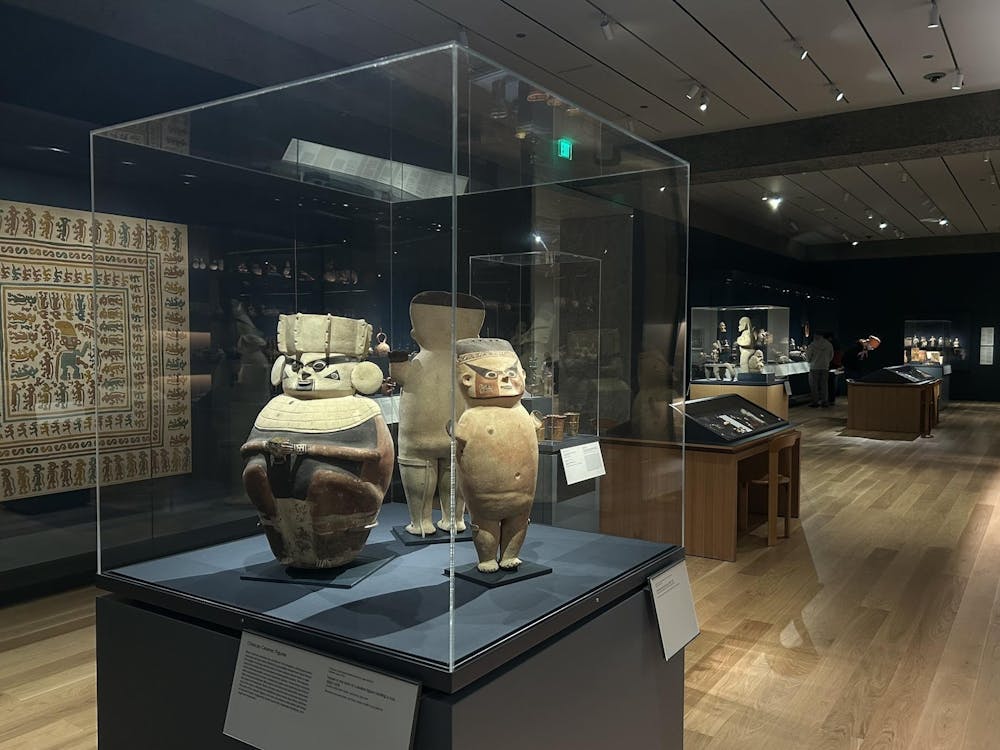Christine Vidmar ’10, a sociology major, is one such student. Vidmar is doing thesis research on Brazilian immigrants, examining how their perception of gender roles changed upon moving to the United States from Brazil.
“It’s quite a different task than other types of theses where you’re going to the library and getting books,” Vidmar said. “When you go into a bar in Newark with Brazilian waitresses and try to start conversations and ask questions about personal lives, it gets kind of tricky.”
Vidmar, like any University researcher looking to work on research projects with human subjects, had to seek approval through the Office of Research and Project Administration. A special branch of the office, the Institutional Review Board on Human Subjects (IRB), receives and reviews between 350 and 400 project proposals a year, said Joe Broderick, who is both secretary of the review board and associate director for research and compliance in the office.
The role of the review board is to “protect human subjects of the research,” Broderick explained. “We don’t decide [whether to green light a project] on scientific merit, worthiness, novelty … but whether the research project is respectful of participants and research.”
Researchers must take part in an extensive application process to gain approval for a project. Questionnaires ask applicants to describe their projects in detail, including the process of selecting subjects.
“It’s such a long process that it thwarts your field work efforts,” Vidmar said, noting that the review board does not meet to approve proposals during the summer. “I’ve been waiting since I got back to school. The first deadline that I could apply for was in October. It’s November now, and I still can’t officially go do my interviews.”
Once the board receives an application, two of its 17 members read over the proposal. These initial readers present the proposals to the rest of the board at its monthly meeting. Major concerns are discussed, and then the board, by consensus, either approves the project or returns it to the applicant with instructions for revision.
“Just last week they asked me to reword a couple of sentences,” Vidmar said. “They’re very strict. I heard at other universities the IRBs are not as strict.”
Psychology major Keisha April ’10, whose project proposal was recently approved by the review board, explained, “They ask you very specific questions aimed at having you think really hard about your project, the implications, and how your project can affect the subjects you are working with.”
Proposals relating to senior theses make up around 20 percent of all applications received by the review board, Broderick said. Since these projects are time-sensitive, the board often gives them special consideration.
“We have a procedure for expediting them, as long as they’re not high-risk projects,” Broderick said. This year, the board approved five to seven senior-thesis project proposals through this expedited process to allow those seniors to begin research over Fall Break.
Psychology major Jenni Newbury ’10, is also pursuing review board approval for her senior thesis on siblings of children with Down Syndrome.

“I am comparing children between the ages of 8 and 12 who have siblings with Down Syndrome and those who have typically-developing siblings,” she explained. “My younger brother has Down Syndrome, so this is a topic very close to my heart.”
Newbury is the co-founder of the student group Princeton Disability Awareness, which organizes the annual Down Syndrome Conference.
Newbury’s proposal was approved last semester, and she began collecting data over the summer, putting her well ahead of her peers. Still, she said she has faced some hurdles.
“One of the biggest obstacles I faced was getting my control subjects over the summer. Since schools were not in session, we attempted to connect with camps but were unsuccessful,” Newbury said.
And besides experiencing logistical difficulties, Newbury has faced conflicts working with her human subjects.
“The main difficulty working with such young children is that they sometimes don’t understand the question and will then just answer randomly, and will often pick the ‘right’ answer instead of the truthful one,” she explained.
Vidmar noted that a well-researched thesis may require up to a year of field work, adding that review board hurdles make it more challenging to complete sufficient research.
“If you’re a senior and you don’t have a thesis chosen by the spring of junior year then you can’t start field research until November or December of senior year, which is really late,” she said. “You need to be in the field in order to know what questions you’re going to ask, but in order to be in the field you need to have given the IRB your questions ahead of time.”







